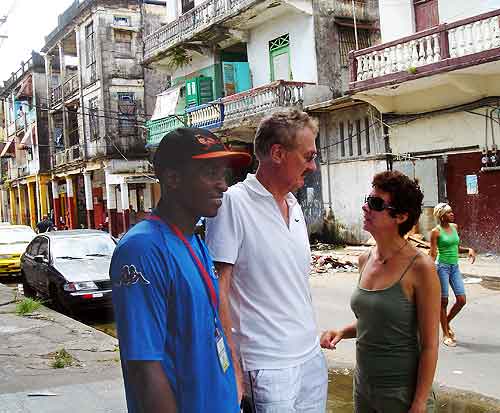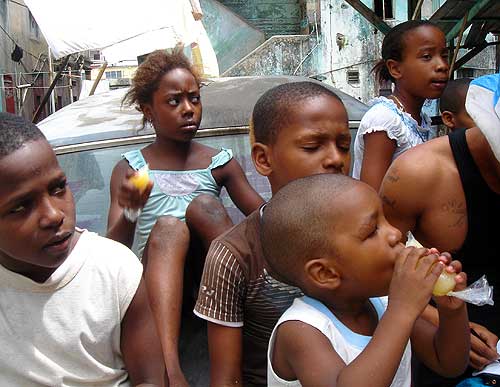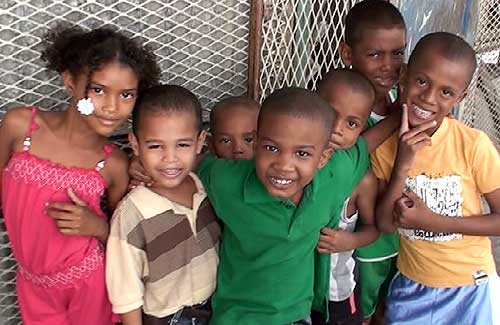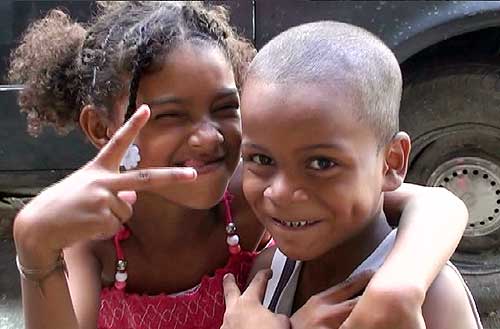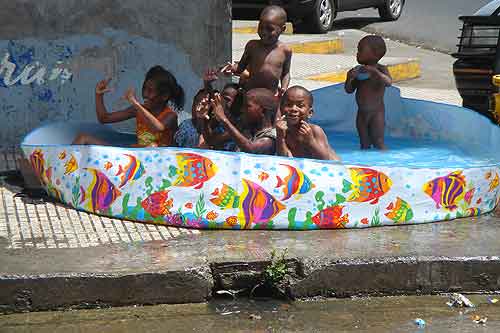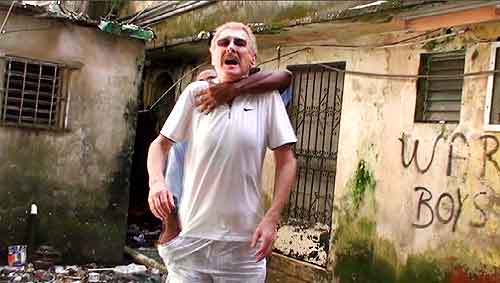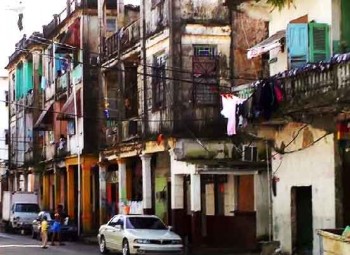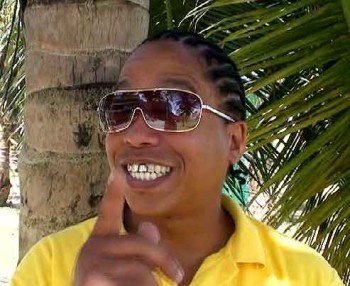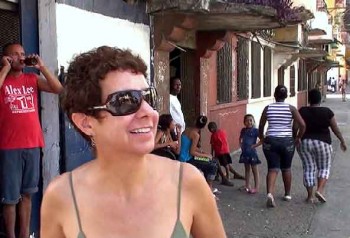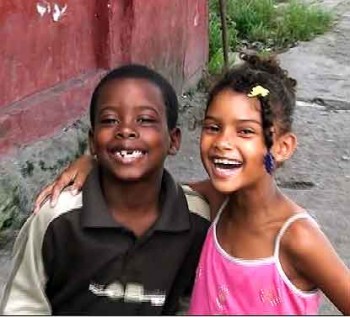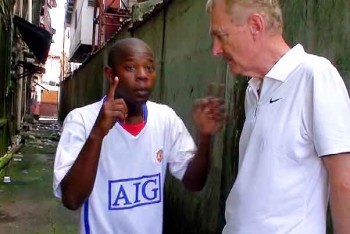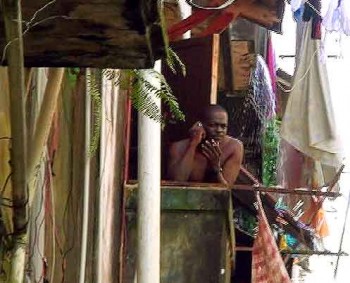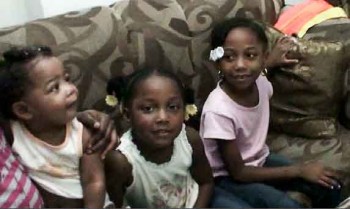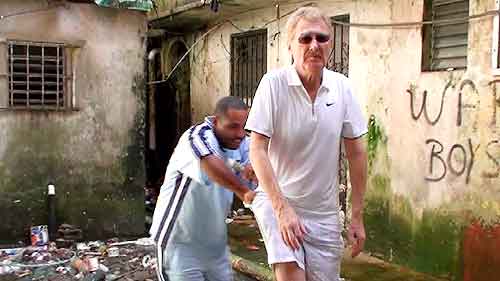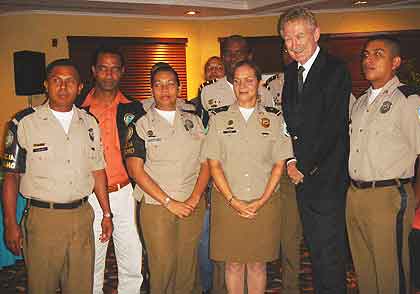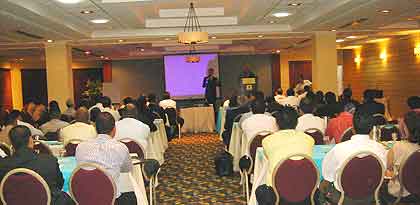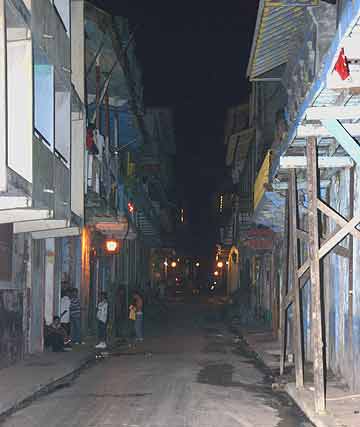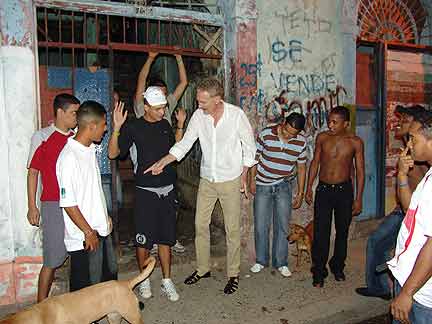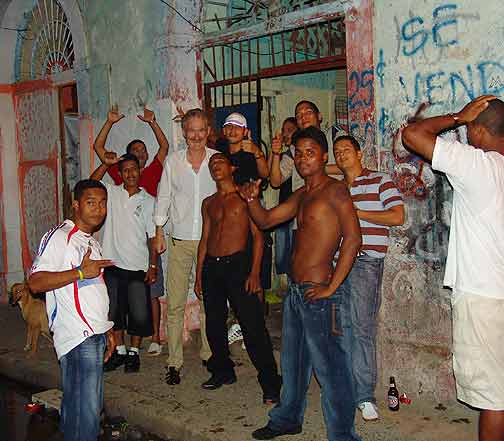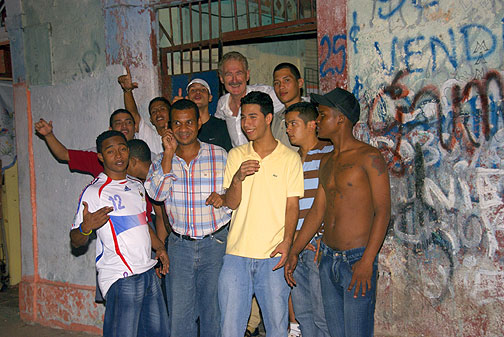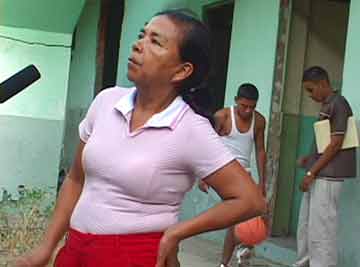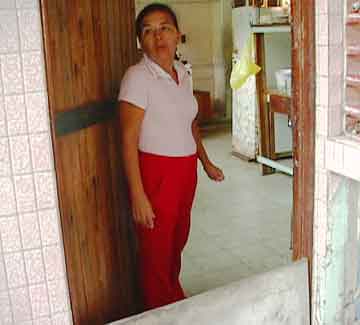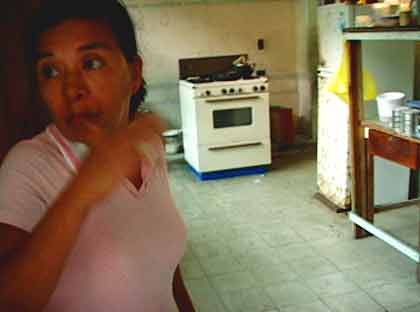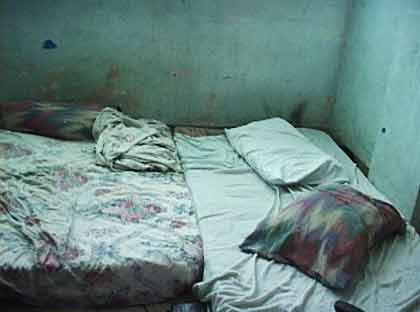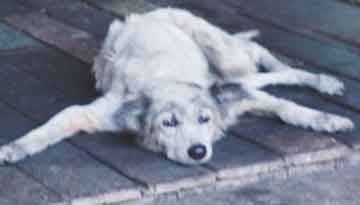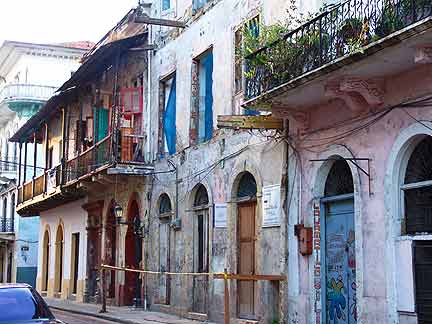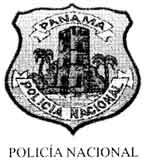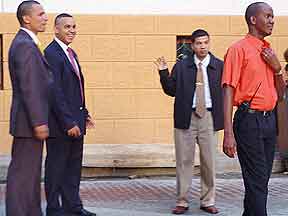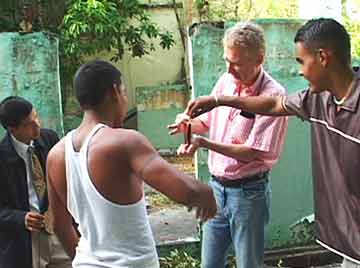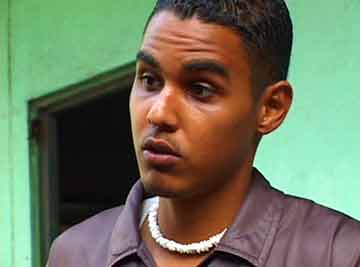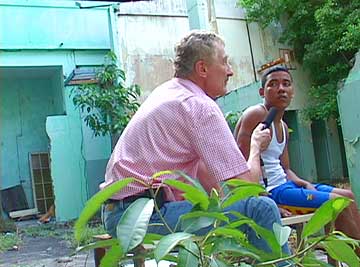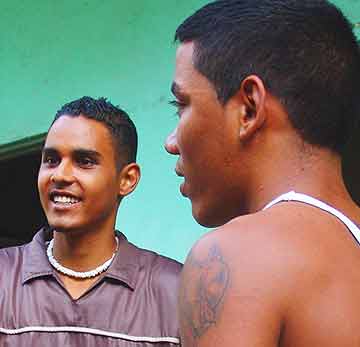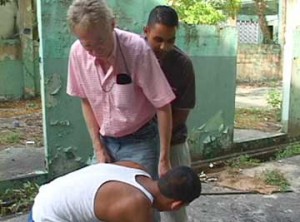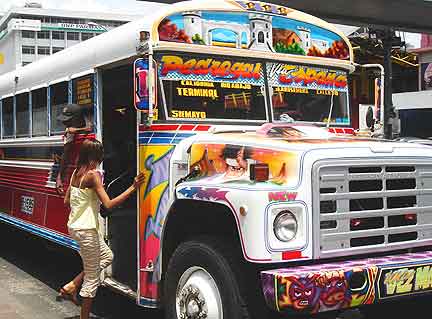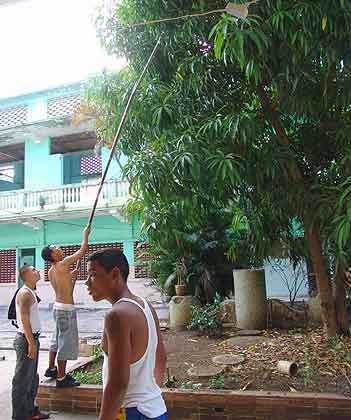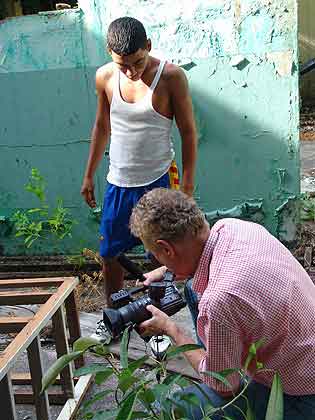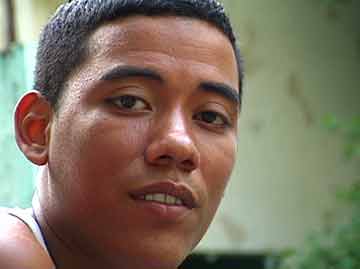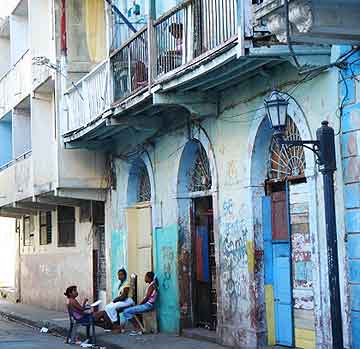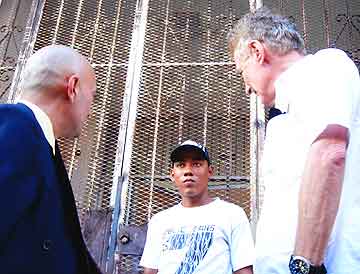[dropcap letter=”Y”]ou look like a million dallahs,” the mugger leers at Bob Arno, his gold teeth glinting in the Panamanian sun. The dozen or so men who’d gathered around us nod and elbow one another.
Bob wears a polyester t-shirt over nylon shorts; acceptable on the tennis court, but otherwise, pretty shabby attire. He wears no jewelry, but his Cole Haan sneakers are pretty snappy. Is that it? The shoes? Or is it the pricey equipment he carries—a sleek video recorder and separate audio recorder?
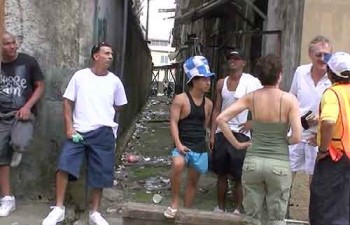
The mugger wears a spotless white t-shirt over a white wife-beater. Fancy, gold-accented sunglasses perch in his short hair. On his wrist, a circa 60s gold watch worth about a thou, give or take. A gangster with a flare for making just the right statement.
Our translator, Gustavo, chuckles nervously, though he’d assured us we were safe with him. As a former gangster himself, he knows, presumably, where his alliances lie. Which is not everywhere, as he was reluctant to walk with us down a street he deemed too dangerous, though it looked much like this street.
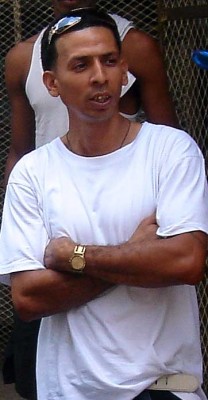
Muggers in Colon, Panama
Enrique, the mugger Bob and I are chatting up, is said to be the baddest of the bad guys. He also seems to be the smartest—and a take-charge kind of man. We started out talking to his fellow gangster Gilberto, but Enrique quickly took over, eagerly answering our questions. As if he really wants us to know what life is like for him and his neighbors.
No one in the neighborhood works, because there isn’t any work. Occasionally, a few of the men will get jobs on construction sites. Even Enrique. But the money from those jobs only lasts so long, and the men need money for their families. So they rob. They steal. They mug.
It’s simply the way of life in this part of Colon. Nothing to be ashamed of, nothing to hide from the children. In fact, we’re surrounded by children of every age as we question Enrique and Gilberto. Dozens of children.
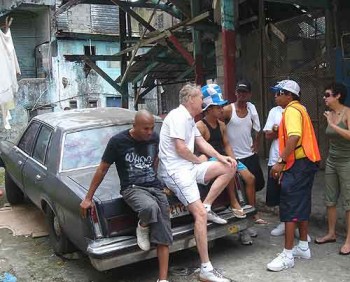
We’d started the interview by moving into a wide alley for privacy, where laundry flutters over a junked car. One by one and two by two, a crowd gathers. Mostly other adult men and small children, while women hang over balconies and push aside curtains at windows on the alley.
We’re in the heart of gangland. Brave and maybe stupid, we’re out of our water. At a shrill whistle, I break into a cold sweat. Fifty rival gangs patrol Colon; violence could erupt at any moment. Three a week are killed, we’re told, in gang fights. Three a week—wow.
I’m smiling till my cheeks hurt and my lips crack. Bob and I do a lot of smiling, mostly with the intent of disarming the thugs. We’re full of false confidence, hoping they can’t smell our fear. A defenseless city couple holding tasty electronic goodies like fish out of water. Like lost wildebeest surrounded by lions hiding in the grass.
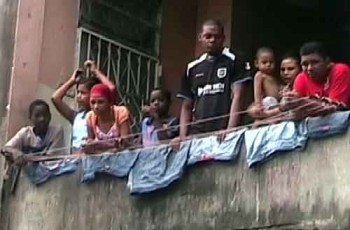
Like the rest of us, Enrique heads to the bank when he needs cash. But that’s where our methods differ. He lingers outside and waits for a flush customer to come out. He uses a gun when he needs to. The problem with robbing bank customers is the police, who tend to watch out for men like Enrique. So his second choice is robbing drug dealers, an activity fraught with deadlier dangers: the drug dealers carry guns. Oh, and there’s the odd tourist who wanders through town.
Enrique is clean-cut and thoughtful-looking, with a nice face. You can barely see the gangster tats peeking out of his t-shirt. He doesn’t look like a mugger, whatever a mugger is supposed to look like. He doesn’t look like the heartless, dangerous man he really is. Neither does Gilberto, a younger man with sad, wistful, distant eyes.
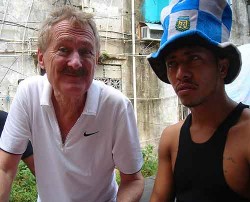
Maybe this is unique to the Panamanian underworld. Angel, the pickpocket from Panama City, looks sweet but clueless. His pal Jaime has intelligent eyes in a handsome face. Both Dajanel and Jael, violent muggers in Colon, have faces you could put on a Disney badge. Even our translator Gustavo, granted, a former gangster, is positively radiant. My impression of Panamanian thieves does not include greed as an attribute. Nor do those I’ve met seem to be drug users or dealers. They just want enough to survive.
As Bob fires questions at Enrique and Gilberto, I marvel at the liveliness of the neighborhood. Music blasts from several sources. Girls on the street and on balconies dance to different beats. Six small children are now perched on the trunk of the parked car, beside and between Bob, Gilberto, and another man. They tap their fingers and toes to music as they listen to their fathers and uncles describe how they pull guns on people to get money.
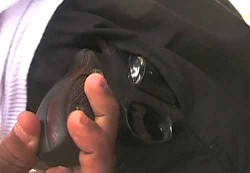
A handgun is suddenly pulled from a pocket and it startles me. The children who’d climbed up on the car are four to eight years old, but the gun is obviously nothing new to them. The point is, everybody’s got a gun in his pocket, even though it means five years in prison if they’re caught with one.
I ask Enrique if he mugs women. He hesitates, then looks embarrassed when he says yes. If her purse looks heavy, if she looks like she’s got money, he’ll mug a woman. There’s no respect. It’s all about the money.
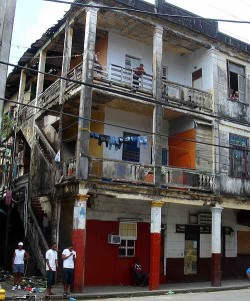
Gustavo finally alludes to his criminal past and prison term. No surprise. He belongs to the government-sponsored company of former gangsters turned tourist guides. His work, when he gets it, usually consists of taking tourists out to the Gatun Locks in the Canal, or to the mall, or to beaches. He’s paid $23 for each day he works, usually two days a week.
Gustavo is decidedly beefier than his gangster pals, and I guess it has to do with his steady income, meager though it is. Later, Gustavo introduced us to yet another former gangster, now a respected office worker for the department of immigration. He has both an email address and a fat belly—signs of success. We also meet a few people wearing braces on their teeth. How can they afford it?, I ask Gustavo. They don’t need braces, he scoffs. It’s just a fashion.
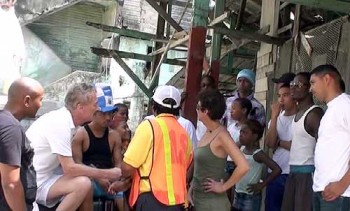
By the time we finish our interviews, some 40 people have gathered round us. The adults stand quietly, politely, crowding in close. The children play, observe us, and mug for our cameras. No one scolds the little ones when they climb some rusty scaffold or run into the street. Tangles of razor wire dangle ominously, and sewers loom without grates. These are wimpy dangers in this neighborhood. Rival gangsters might come around the corner at any moment. The slightest infractions justify killing: You looked at my girlfriend. I want those shoes.
We hear a siren, but it’s probably the nearby fire station. The police only show up after gunfights, they tell us. They only come to pick up the bodies.
Bob has more to say about muggers, Panama, and our experience there. Stay tuned.

